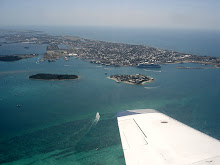



Paradise is a place in which existence is positive, harmonious and timeless. It is conceptually a counter-image of the miseries of human civilization, and in paradise there is only peace, prosperity, and happiness. Paradise is a place of contentment, but it is not necessarily a land of luxury and idleness. It is often used in the same context as that of utopia.
Paradisaical notions are cross-cultural, often laden with pastoral imagery, and may be cosmogonical or eschatological or both. In eschatological contexts, paradise is imagined as an abode of the virtuous dead. In Christian and Islamic understanding heaven is a paradisaical relief, evident for example in the Gospel of Luke when Jesus tells a penitent criminal crucified alongside him that they will be together in paradise that day. In Native American beliefs, the other-world is an eternal hunting ground. In old Egyptian beliefs, the other-world is Aaru, the reed-fields of ideal hunting and fishing grounds where the dead lived after judgment. For the Celts, it was the Fortunate Isle of Mag Mell. For the classical Greeks, the Elysian fields was a paradisaical land of plenty where the heroic and righteous dead hoped to spend eternity.
Now that you know the meaning of Paradise, I will share with you what it looks like! Key West is my home and is Paradise to me!
